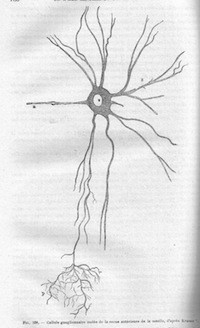The Urinary Opioid Peptide test is a test of the presence of opioid peptides in the first morning urine. These opioid peptides are small chains of gluten or casein proteins which are not well digested and therefore pass through the gut barrier and are found in the urine.
Usually, in the case of a person in good health, all proteins, which are polypeptides or chains of elementary units called amino acids, are divided into these amino acids by the enzymatic system during the digestion. But if proteolytic enzymes that are responsible for this transformation do not work properly, the proteins are partially cut into peptides, small chains of some amino acids.
These peptides go through the intestinal wall because of the increased hyperpermeability of the bowel or the so called "leaky gut syndrome" that exists in most people due to various causes: stress, toxins, drugs, pathological bacteria, antibody reaction of intestinal mucosa, etc. The intestinal wall ideally should let only the well-digested food units go through it: amino acids, monosaccharides and fatty acids and prevent the passage of pathogens and poorly digested food, but it does not happen this way when the permeability is altered. As a result, the peptides proceeding from gluten and casein are found in the blood.
These opioid peptides called gluteomorphin and casomorphin have a neurological effect. They are called opioid peptides because they alter brain function at the level of neurotransmitters, binding to receptors and impeding the correct transmission of dopamine, serotonin and norepinephrine in the synaptic space which allows neurons to communicate with each other. People feel this effect first in the intestine itself, as the neurons that exist there are affected (the gut is our second brain with 100 million neurons). In addition, if someone has been poisoned by heavy metals, the blood-brain barrier is damaged and peptides can reach the brain and cause neurological and behavioral disorders.
Another effect of opioid peptides is the alteration of the immune system, since the white blood cells also have receptors for these peptides so that they are weakened. That is why the immune defenses of children with these kind of problems are often weak.
The rate of elimination of gluten and casein has demonstrated its effectiveness in treating children with neurological and behavioral disorders. This diet should be complemented by a treatment to restore intestinal flora and intestinal hyper-permeability.
The laboratory MGD in Geneva and the laboratory of Dr. Nataf in Paris perform this Opioid Peptide test.
Sources:
“Can the pathophysiology of autism be explained by the nature of the discovered urine peptides?”, http://www.ncbi.nlm.nih.gov/pubmed/12608733
“Urine peptide patterns in children with milder types of autism”, http://www.ncbi.nlm.nih.gov/pubmed/16732341
“The Effect of Gluten-Free Diet on Urinary Peptide Excretion and Clinical State in Schizophrenia”, http://www.orthomolecular.org/library/jom/1990/pdf/1990-v05n04-p223.pdf
“Genetic and dietary factors related to schizophrenia”, http://orthomolecular.org/library/jom/1990/pdf/1990-v05n04-p223.pdf
Usually, in the case of a person in good health, all proteins, which are polypeptides or chains of elementary units called amino acids, are divided into these amino acids by the enzymatic system during the digestion. But if proteolytic enzymes that are responsible for this transformation do not work properly, the proteins are partially cut into peptides, small chains of some amino acids.
These peptides go through the intestinal wall because of the increased hyperpermeability of the bowel or the so called "leaky gut syndrome" that exists in most people due to various causes: stress, toxins, drugs, pathological bacteria, antibody reaction of intestinal mucosa, etc. The intestinal wall ideally should let only the well-digested food units go through it: amino acids, monosaccharides and fatty acids and prevent the passage of pathogens and poorly digested food, but it does not happen this way when the permeability is altered. As a result, the peptides proceeding from gluten and casein are found in the blood.
These opioid peptides called gluteomorphin and casomorphin have a neurological effect. They are called opioid peptides because they alter brain function at the level of neurotransmitters, binding to receptors and impeding the correct transmission of dopamine, serotonin and norepinephrine in the synaptic space which allows neurons to communicate with each other. People feel this effect first in the intestine itself, as the neurons that exist there are affected (the gut is our second brain with 100 million neurons). In addition, if someone has been poisoned by heavy metals, the blood-brain barrier is damaged and peptides can reach the brain and cause neurological and behavioral disorders.
Another effect of opioid peptides is the alteration of the immune system, since the white blood cells also have receptors for these peptides so that they are weakened. That is why the immune defenses of children with these kind of problems are often weak.
The rate of elimination of gluten and casein has demonstrated its effectiveness in treating children with neurological and behavioral disorders. This diet should be complemented by a treatment to restore intestinal flora and intestinal hyper-permeability.
The laboratory MGD in Geneva and the laboratory of Dr. Nataf in Paris perform this Opioid Peptide test.
Sources:
“Can the pathophysiology of autism be explained by the nature of the discovered urine peptides?”, http://www.ncbi.nlm.nih.gov/pubmed/12608733
“Urine peptide patterns in children with milder types of autism”, http://www.ncbi.nlm.nih.gov/pubmed/16732341
“The Effect of Gluten-Free Diet on Urinary Peptide Excretion and Clinical State in Schizophrenia”, http://www.orthomolecular.org/library/jom/1990/pdf/1990-v05n04-p223.pdf
“Genetic and dietary factors related to schizophrenia”, http://orthomolecular.org/library/jom/1990/pdf/1990-v05n04-p223.pdf
 According to research studies conducted by Professor Karl Reichelt at the University of Oslo, behavioral disorders and various neurological diseases stem from an intolerance to cereals containing gluten and milk casein.
According to research studies conducted by Professor Karl Reichelt at the University of Oslo, behavioral disorders and various neurological diseases stem from an intolerance to cereals containing gluten and milk casein.







 Gemma Calzada is a Holistic Nutritionist Ph.D. and a certified GAPS practitioner, accredited by ASCA. Her mission is to improve health through nutrition and to help people suffering from a dietary intolerance to live happily.
Gemma Calzada is a Holistic Nutritionist Ph.D. and a certified GAPS practitioner, accredited by ASCA. Her mission is to improve health through nutrition and to help people suffering from a dietary intolerance to live happily. 
